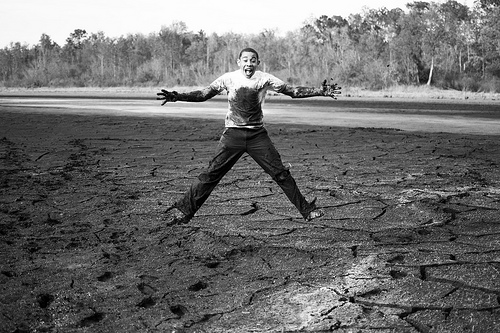Lectionary Relection for the Eighth Sunday after Pentecost
July 14, 2013
But wanting to justify himself, he asked Jesus, “And who is my neighbor?” Luke 10:29
The lawyer asked the right question for all the wrong reasons. Can’t you just picture him? You know–smart, studious, well-schooled in Torah and tradition, maybe just a hint too self-assured–not unlike his 21st century counterparts. We are told by Luke that he came to test Jesus and to justify himself. I wonder if we would act much differently standing in that lawyer’s sandals?
In typical Jesus fashion, the lawyer gets a story rather than a simple direct answer. He is drawn into the story and asked to sort it out for himself. He is convicted by the truth and instructed to “go and do likewise.” Instead of adhering to familial and cultic comfort zones, Jesus  calls the lawyer to look beyond his world and see possibility and encounter risk. Jesus afflicts him with the very tools upon which this learned man has come to rely. Instead of predictable lines and clear black and white, the lawyer must encounter the twists, turns, and gray areas of discipleship. And so must we today.
calls the lawyer to look beyond his world and see possibility and encounter risk. Jesus afflicts him with the very tools upon which this learned man has come to rely. Instead of predictable lines and clear black and white, the lawyer must encounter the twists, turns, and gray areas of discipleship. And so must we today.
Who is our neighbor today? How do we begin to answer this question honestly? The comfortable response is the folks who look like me, think like me, and act like me. Yet, according to Jesus’ story, that isn’t necessarily the right answer. Sure our neighbor can be folks like us, but the circle needs to be drawn a whole lot wider. Remember, in Jesus’ world there is room for everybody at the table–kith and kin, stranger and alien. If we are followers of Jesus, that means there had better be room for everyone today, too!
If we are to “go and do likewise” as Jesus instructed the lawyer, we must show mercy and compassion and hospitality to all. We can’t go scuttling on down the street intent on keeping our hands clean and our schedules orderly when a neighbor is in need. We can’t ignore the neighbor who blocks our path and threatens to disrupt our routine. And, we have to realize that neighboring goes both ways; the unclean, disruptive, outsider may be just the neighbor who God calls to pour oil and wine into our own wounds. Loving one’s neighbor is risky and messy business indeed.
In her book God’s Welcome: Hospitality for a Gospel-Hungry World, Professor of Early Church History and Spirituality Amy Oden says, “Welcoming the stranger puts oneself and one’s community at risk. At best, the stranger is disruptive, bringing strange ideas and new, even wrong, ways of doing things. At worst, the stranger is dangerous, bringing disease, dishonor or violence. Welcoming the stranger is risky: everyone will be changed, host and guest alike…. And we cannot know ahead of time what the changes will be.”
Squirming yet? I hope so because I sure am. Oden’s words raise all kinds of questions for me, as does this story. In fact, this passage was the  one I chose for the gospel reading at my ordination because I knew Jesus’ admonition is one that should shape the life and ministry of every disciple. I continue to wrestle with how Jesus’ words shape my life and ministry, and new questions spring forth every time I encounter the Good Samaritan story.
one I chose for the gospel reading at my ordination because I knew Jesus’ admonition is one that should shape the life and ministry of every disciple. I continue to wrestle with how Jesus’ words shape my life and ministry, and new questions spring forth every time I encounter the Good Samaritan story.
One question this familiar story raises is just who are the neighbors that have not been invited to the table? If there is truly room for all people at Jesus’ table, why aren’t we pulling up all the extra chairs in the house? Or here’s a thought: Maybe we also need to figure out how we look to our neighbors. Do we look more like Samaritans or priests and Levites? Do we look just plain odd and outmoded as we trot into our big buildings on Sunday morning?
Perhaps we need to have a little oil of compassion and wine of mercy poured over our own heads. Maybe our “not-so-likely neighbors” are just the ones God has in mind to bring healing, hope, and new life to us. Why not fling wide the doors, go out into the neighborhood and beyond, and reflect the love, mercy, and compassion of Christ, poured out like oil and wine to heal this world? How about taking some risk, making a mess, and entering into relationship with folks outside our own circle, our familiar tribe? What do we have to lose? Our neighbors need us, and we need them, too.
In Worship
Consider an alternate or additional sending today–more of a commissioning to “go and do likewise.” In doing so, remind the gathered community to look for neighbors in unexpected places and chance encounters. Pray that the community will be equipped to show mercy, to be lavish with hospitality, and to show the love of Christ without expectation of any return. As a visual, you might stand behind an empty chair and invite the community to envision a neighbor they know who could fill that empty spot at the table. If they can’t think of someone, invite them to pray that God will send someone into their life this week to fill the empty chair, again without any expectation of return or benefit.
With Youth
Youth may “get” this story in a fresh way. Invite them to “recast” the roles and “restage” the drama. How would they do it? What would work in their context? We live in a time where stopping to help a stranger on the side of the road is considered dangerous. What would convince them to stop and help someone, to take the risk, to pour the oil and wine, and to give of themselves without expectation of return? Consider recording their “drama” and posting it on the church website or showing it in worship.
With Children
If your congregation is like the one I serve, people pray for the children and youth on a regular basis. Consider talking about Paul’s introduction to the Christians of Colossae in today’s second lesson. Consider having a large scroll made up before worship with a paraphrased version of these verses in a letter written from the confirmed members of the congregation to the children. In this “letter” remind the children that you give thanks for them, that you are aware of their gifts and talents for ministry in your community, and that you pray for them so that they may continue to grow in faith. You might even cite youth leaders and Sunday school teachers in place of Epaphras. Try to have the scroll somewhere before worship where members of the community can sign it. Post the completed scroll where the children can see it for the rest of the summer and be reminded that they are loved and valued in your community. Finish the children’s time with a prayer of blessing, encouraging the congregation to shout out a hearty “amen.”
Creative Commons Photos: Frame It Photography, bobosh_t, and mOOby)




Leave a Reply